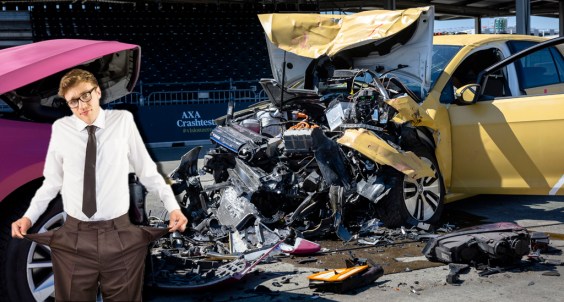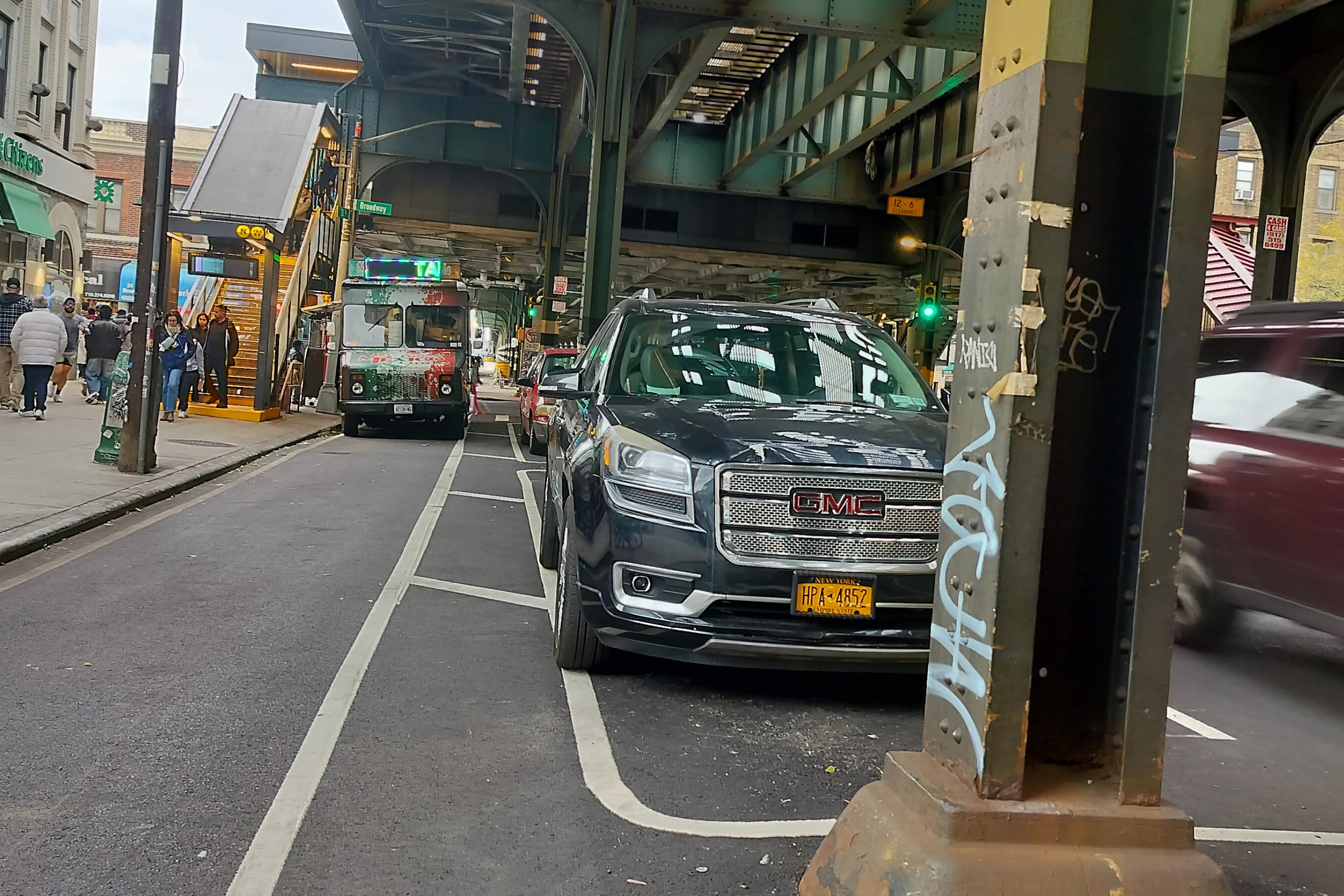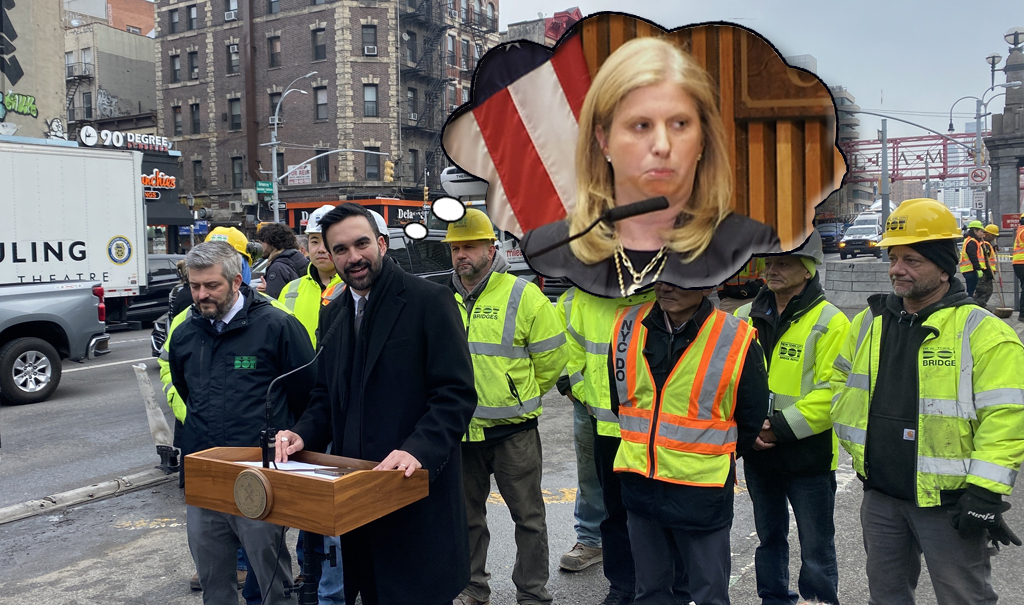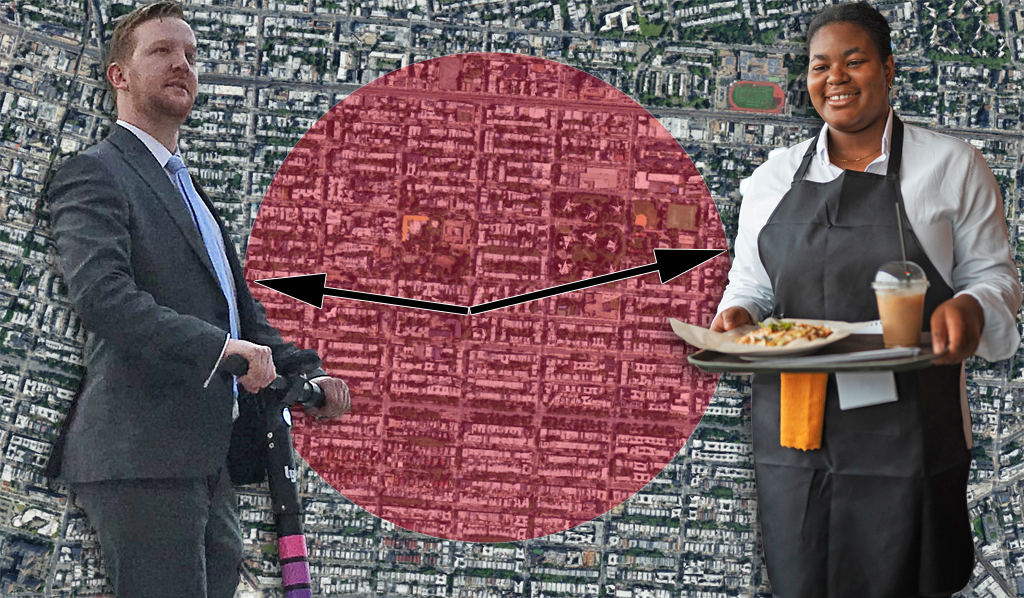Today on the Streetsblog Network, David Alpert at Greater Greater Washington counters the accusation that, just because he believes in less autocentric development, he hates cars. In an extremely eloquent and thoughtful post, Alpert makes the distinction between "no more cars" and "not more cars":
Photo by lizjones 112 via Flickr.
Advocates for more walkable, bikeable, and transit-oriented places often face criticism that we "hate cars." Gary Imhoff assumes that "nothing makes [me] angrier than automobiles." And on yesterday's thread about "green" companies giving away gas and parking, Fritz wrote, "The majority of residents of the DC Metro Area aren't like you. It's perhaps the greatest weakness among the anti-car brigades on this website: the near impossibility of recognizing that not everyone wants to walk or bike as their main mode of transportation."
These responses rest on a logical fallacy. I've advocated for new development to minimize auto dependence. But many take that to mean that everyone ought to travel by train, bus, bike or foot. However, new living patterns need not resemble existing living patterns. New residents won't necessarily interact with communities in the exact same way as existing residents. We don't need to get rid of cars. What we need is to avoid adding many new cars...
We are in the middle of a paradigm shift in the design of our communities. The sprawl model of development that predominated for sixty years isn't sustainable and, more importantly, is no longer what the market wants. Prices in established walkable neighborhoods are sky-high while nearby walkable neighborhoods are gentrifying rapidly. We have enough single-family homes for the next 20 years; in fact, nationwide, analysts predict we'll have 22 million too many.
There's nothing evil about wanting to live in a house with a yard and a picket fence. Some government policies may unfairly subsidize that form of living with cheap infrastructure, but it's still a totally valid way to live. It's just that there are lots of those houses. Meanwhile, there aren't enough condos and row houses in walkable neighborhoods...
Tom Coumaris recently suggested the phrase "no more cars," which I misinterpreted at first to mean "get rid of cars," but which he meant as "no additional cars." In effect, what advocates for livable and walkable communities want is "not more cars" -- growth that doesn't bring more cars. Some then misinterpret this as an attempt to ban cars -- "no more cars." It's a subtle difference, but an enormous one. Low-traffic growth is good for existing drivers as well. Low-traffic growth means less competition for the roadway space they're already using, and less pollution from people driving through their communities to get to new exurban ones farther out. We should all be able to support policies that allow growth but "not more cars."
Alpert's post has generated some great comments. Head on over and check it out.
Other things that caught our eye from around the network: New Geography has a fascinating post about the commuting patterns of immigrants that raises important policy questions about the allocation of transit resources. At How We Drive, Tom Vanderbilt wonders if there's a silent majority in favor of red-light cameras. And Trains for America reports on how the recession has brought Amtrak's ridership numbers down. Interestingly, long-distance routes have taken less of a hit than short hauls.





